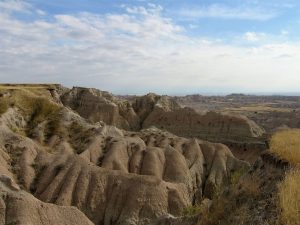Hosea 4:1-3
Cursing, lying, murder, stealing, and adultery are rampant; one act of bloodshed follows another. For this reason the land mourns, and everyone who lives in it languishes, along with the wild animals and the birds of the sky; even the fish of the sea disappear (4:2-3 CSB).
Next we see that Israel was involved in multiple violations of the law covenant. Israel transgressed specific commands, and each one was a violation of her covenant duty to the Lord. Where positive godliness is absent, we may expect to find outright breaking of God’s law.
- Cursing (Deuteronomy 5:11) – the third command
- Lying (Deuteronomy 5:20) – the ninth command
- Murder (Deuteronomy 5:17) – the sixth command
- Stealing (Deuteronomy 5:19) – the eighth command
- Adultery (Deuteronomy 5:18) – the seventh command
This sounds like contemporary western civilization, doesn’t it?
Such immorality produces a chaotic situation. Sin and peace do not agree. Where one is present, the other is not. The contempt and spurning of God’s main laws leads to the general disregard of all laws. You can’t remove the foundation of a tower from under it, and not have the tower fall upon you. Today, we experience the tragic consequences of sexual immorality and greed. How many poor people are exploited? Are you feeling the crush of the growing disparity between the rich (a few) and the poor (an ever-increasing number)? How many women have been sexually abused? What of the growing sexual and physical abuse against helpless children? Western society is running toward the precipice of total ruin.
When God and his laws are abandoned, people lose the value of human life. Self-gratification and violence against all who oppose any individual’s pleasures have become the principles of this “post-Christian” lifestyle.
We Christians have an opportunity in our day to show that God has more for people than a perverted individualism. In the church God is building a new society, in which peace is the governor (Colossians 3:15) and love (Ephesians 5:2) is the basic principle of conduct. We must take advantage of the opportunity to demonstrate what community is.
And so, old covenant Israel fell under the heavy consequences of sin. What was the reason for these consequences? God was fulfilling his threat concerning disobedience of the law covenant (Deuteronomy 28). Physical blessings were promised to Israel, if they obeyed (28:1-14). But physical ruin would surely come, if they broke God’s law (28:15-68). We need to come to terms with the Biblical idea of God’s kindness and sternness (Romans 11:22).
Sadly, Israel had nothing to expect but disaster. In poetic speech, the land itself went into mourning. All creation is affected by human sin. There will be famines and earthquakes in various places (Matthew 24:27b).
All this points to our need for repentance, individually and nationally. America is not God’s nation; instead, the church is (Ephesians 2:11-22). However, we all, from whatever countries of the world, are part of political nations that will give account to God for their wickedness. Let us turn away from the breaking of God’s laws, mourn over our people’s transgressions, and seek God’s mercy. Then may God give us grace to be faithful, to be kind, and to know him ever more richly.
Grace and peace, David

 Ruth 1:1-5
Ruth 1:1-5